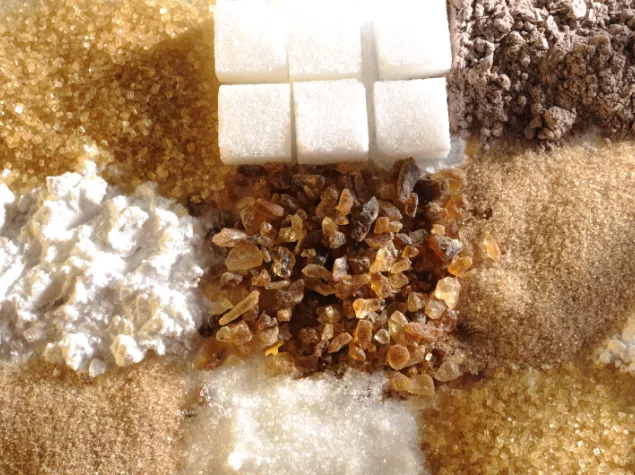Sugars feeding cancer cells: a misconception
Glucose (a simple sugar) is a highly consumed nutrient by cancer cells, which are known to rewire metabolic pathways to meet their energy demands. This has led to the misconception that reducing or removing sugars from the diet will prevent or slow down cancer growth (6,7). However, all cells use glucose for energy and the body keeps blood glucose at a steady level (not too high or too low) to ensure that all cells have a constant energy source (6). The U.S. National Cancer Institute states there is no evidence from human studies that consuming sugars causes cancer to grow at a faster rate, or that a no- or low-sugar diet will cause cancer to shrink, or disappear (7).
References
1. World Health Organization: Regional Office for Europe. World Cancer Report: cancer research for cancer development. IARC; 2020.
2. Body fatness, weight gain and the risk of cancer. WCRF International. https://www.wcrf.org/dietandcancer/body-fatness-and-weight-gain-and-the-risk-of-cancer/
3. WCRF International. Non-alcoholic drinks and cancer risk. WCRF International. 2018 https://www.wcrf.org/diet-activity-and-cancer/risk-factors/non-alcoholic-drinks-and-cancer-risk/
4. Scientific Advisory Committee on Nutrition. Carbohydrates and Health. London: Published for Public Health England from the Stationery Office; 2015.
5. European Food Safety Authority. Outcome of the public consultation on a draft protocol for the Scientific Opinion on dietary sugars. EFSA Support Publ. 2018;15(8):1455E.
6. American Institute for Cancer Research. The Sugar and Cancer Connection. https://www.aicr.org/news/the-sugar-cancer-connection/
7. Common Cancer Myths and Misconceptions - National Cancer Institute. 2023. https://www.cancer.gov/about-cancer/causes-prevention/risk/myths
8. World Cancer Research Fund International. Limit sugar sweetened drinks. https://www.wcrf.org/dietandcancer/limit-sugar-sweetened-drinks/
9. World Cancer Research Fund. Avoid food and drink that’s high in calories. https://www.wcrf-uk.org/preventing-cancer/our-cancer-prevention-recommendations/avoid-high-calorie-foods/








